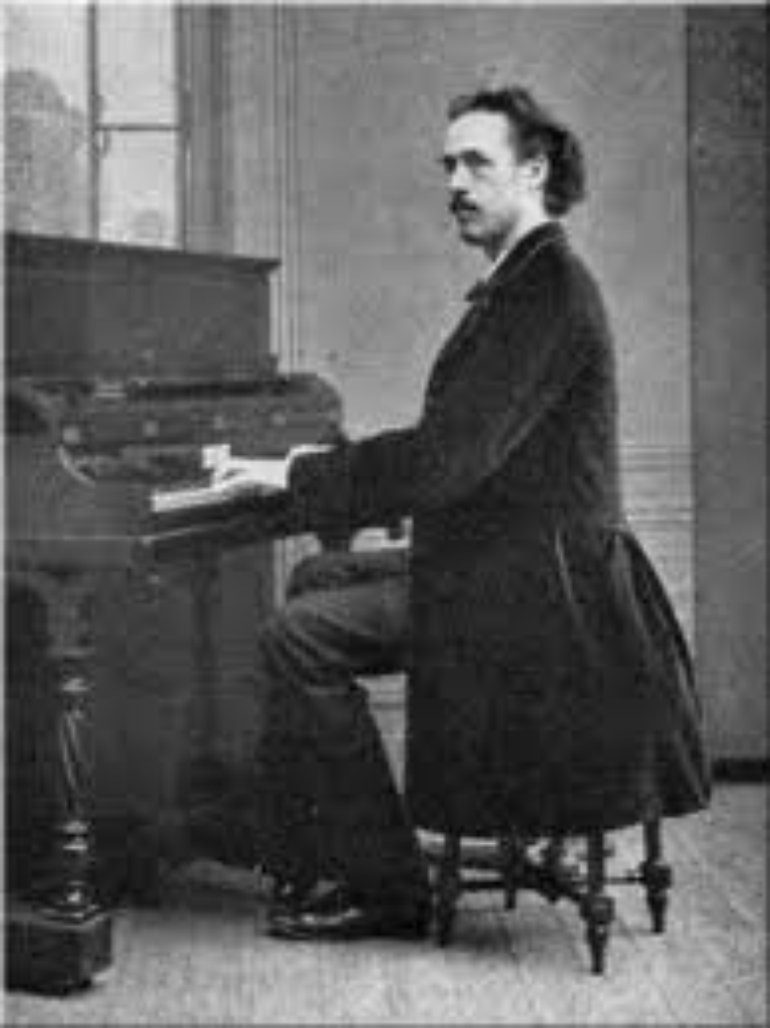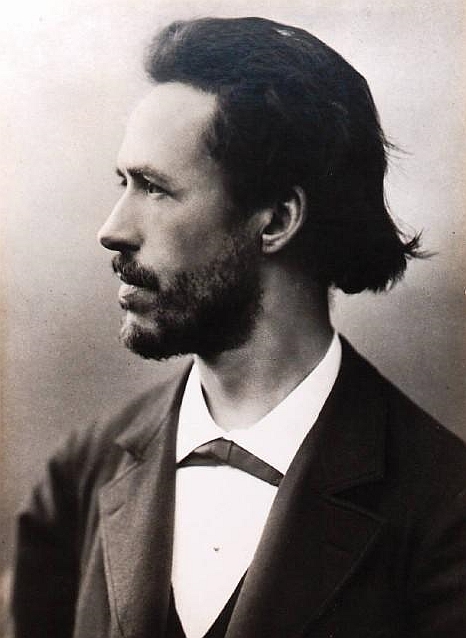

Benjamin Louis Paul Godard (Parijs, 18 augustus 1849 – Cannes, 10 januari 1895) was een Frans componist.
Godard studeerde aan het conservatorium van Parijs compositie bij Napoléon-Henri Reber en viool bij Richard Hammer en Henri Vieuxtemps. Als zeventienjarige componeerde hij zijn eerste vioolsonate. In 1878 kreeg hij zowel de Prix Chartier als de Prix de la Ville de Paris voor zijn ‘symphonie dramatique’ Le Tasse. Vanaf 1887 was hij docent aan het conservatorium.
Godard componeerde zes opera’s, vijf symfonieën, twee Pianoconcerten en twee vioolconcerten, strijkkwartetten, sonates voor viool en piano, pianostukken en -etudes en meer dan honderd liederen. Hij was een fel tegenstander van Wagner om zijn muziek zowel als zijn antisemitisme, en componeerde in een behoudende stijl die geïnspireerd is op Mendelssohn en Schumann. Tot zijn beste werken worden gerekend de vierde vioolsonate (1872), de beide vioolconcerten (1876, 1891), de Symphonie légendaire (1886) en de opera Jocelyn (1888), waaruit zijn populairste stuk, de Berceuse, afkomstig is.
Hij werd in 1889 ridder in het Legioen van Eer. Godard stierf op 45-jarige leeftijd in Cannes aan tuberculose en werd bijgezet in het familiegraf in Taverny in het Franse departement Val-d’Oise.
Benjamin Godard begann entstammte einer musikliebenden Kaufmannsfamilie; sein Bruder Amédée Godard war ebenfalls Komponist, seine Schwester Magdeleine Godard (1860–1940) Geigerin. Im Alter von sieben Jahren erlernte er das Violinspiel und spielte mit neun Jahren öffentlich im Quartett mit. Zu seinen Lehrern zählte der aus Elberfeld stammende Geiger Richard Hammer. Am Pariser Konservatorium studierte ab dem 10. Lebensjahr Komposition bei Napoléon-Henri Reber und Violine bei Henri Vieuxtemps. Mit Letzterem bereiste er zweimal Deutschland, wo sein Kompositionstalent bedeutende Anregung erhielt. Ab 1887 war er Lehrer am Konservatorium.
Godard komponierte sechs Opern, fünf Sinfonien, zwei Klavier- und zwei Violinkonzerte, Streichquartette, Sonaten für Violine und Klavier, Klavierstücke und -etüden und mehr als einhundert Lieder. An der Stelle von Jules Pasdeloup zur Leitung der von diesem begründeten Concerts populaires berufen, bewährte Godard sich auch als Orchesterdirigent.
1892 zog er sich wegen einer Tuberkuloseerkrankung an die Côte d’Azur zurück.
Benjamin Louis Paul Godard (18 August 1849 – 10 January 1895) was a French violinist and Romantic-era composer of Jewish extraction, best known for his opera Jocelyn. Godard composed eight operas, five symphonies, two piano and two violin concertos, string quartets, sonatas for violin and piano, piano pieces and etudes, and more than a hundred songs. He died at the age of 45 in Cannes (Alpes-Maritimes) of tuberculosis and was buried in the family tomb in Taverny in the French department of Val-d’Oise.
Godard was born in Paris in 1849. He entered the Conservatoire de Paris in 1863 where he studied under Henri Vieuxtemps (violin) and Napoléon Henri Reber (harmony) and accompanied Vieuxtemps twice to Germany.
In 1876, his Concerto romantique was performed at the Concerts Populaires, and other of his large works were also performed at these concerts. In 1878, Godard was the co-winner of the Prix de la Ville de Paris. His winning composition, a dramatic symphony entitled Le Tasso, remains one of his most admired works.
From that time until his death Godard wrote a large number of compositions. These include eight operas, among them: Jocelyn (the “Berceuse” from which remains Godard’s best-known composition), performed in Paris in 1888; Dante, played at the Opéra-Comique two years later; and La Vivandière, left unfinished and completed by Paul Vidal (1863–1931). The last of these was heard at the Opéra-Comique in 1895, and has been played in England by the Carl Rosa Opera Company.
He became a professor at the Conservatoire de Paris in 1887, and was made a Chevalier (Knight) of the Légion d’honneur in 1889.
Godard’s long list of works includes five symphonies: Symphonie gothique (1883), Symphonie orientale (1884), and Symphonie légendaire (1886); Concerto romantique for violin and orchestra (1876), two piano concertos, three string quartets, four sonatas for violin and piano, a sonata for cello and piano, two piano trios, and various other orchestral works. Among his piano pieces may be mentioned Mazurka No. 2, Valse No. 2, Au Matin, Postillon, En Courant, En Train, and Les Hirondelles. Florian’s Song is also very popular and has been arranged for many instruments. Godard’s fourth sonata for violin and piano contains a scherzo written in the unusual time signature of 5
4. He wrote more than 100 songs.
According to the Encyclopædia Britannica Eleventh Edition, “Godard’s compositions are unequal, if only because his productivity was enormous. He was at his best in works of smaller dimensions. Among his more ambitious works, the Symphonie légendaire may be singled out as being one of the most distinctive.”
Godard was opposed to the music of Richard Wagner and also highly critical of Wagner’s antisemitism. Godard’s musical style was more in tune with those of Felix Mendelssohn and Robert Schumann. https://de.wikipedia.org/wiki/Benjamin_Godard
